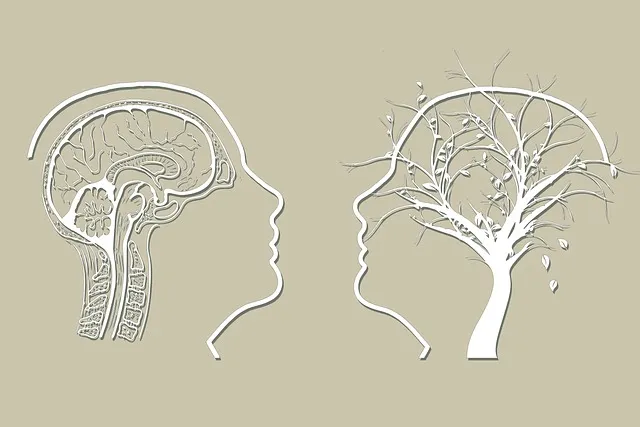Kaiser Permanente's mental health center in Aurora prioritizes cultural competency training, addressing diverse patient needs through tailored care. Their programs reduce barriers, offer culturally relevant treatments, and empower staff with skills to foster trust and engagement. This approach, evident from positive reviews, revolutionizes mental health services, setting a standard for inclusive, effective care as showcased by Kaiser Permanente mental health center reviews Aurora.
In today’s diverse healthcare landscape, cultural competency training is no longer an option—it’s a necessity. This comprehensive guide explores the vital role of such training in improving patient care, especially at Kaiser Permanente’s Aurora mental health center, known for its innovative approaches. We delve into the impact on patient outcomes and present effective strategies to enhance cultural sensitivity among healthcare providers. Discover how Kaiser Permanente’s model, backed by compelling reviews, is transforming lives through cultural competency.
- Understanding Cultural Competency in Healthcare: A Necessity in Modern Practice
- Kaiser Permanente Aurora: A Hub for Mental Health Services and Training
- The Impact of Cultural Competency Training on Patient Outcomes
- Effective Strategies for Healthcare Providers to Enhance Cultural Sensitivity
- Reviews and Success Stories: How Kaiser Permanente's Approach is Transforming Lives
Understanding Cultural Competency in Healthcare: A Necessity in Modern Practice

In today’s diverse society, cultural competency within healthcare is no longer an optional consideration but a necessity. It involves understanding and appreciating the cultural nuances and values of patients from various backgrounds, ensuring that everyone receives care tailored to their unique needs. This is especially relevant in institutions like Kaiser Permanente mental health centers, such as the one in Aurora, where individuals seeking treatment for issues like anxiety relief and confidence boosting come from all walks of life.
Cultural competency training equips healthcare providers with Mind Over Matter Principles to effectively interact and connect with patients from different cultures. By recognizing and respecting these differences, healthcare professionals can foster a safe and inclusive environment, leading to better patient engagement and outcomes. This is crucial in mental health services where building trust and understanding is vital for successful treatment, as reviewed by many satisfied Kaiser Permanente Aurora clients.
Kaiser Permanente Aurora: A Hub for Mental Health Services and Training

Kaiser Permanente Aurora stands as a beacon for mental health services and training, fostering cultural competency among healthcare providers. This mental health center reviews have consistently praised its holistic approach to patient care, integrating Self-Awareness Exercises to empower individuals in managing their mental well-being. By prioritizing Depression Prevention and Self-Esteem Improvement, the facility not only treats existing conditions but also equips patients with tools for long-term resilience. The comprehensive training programs offered at Kaiser Permanente Aurora ensure healthcare providers are equipped to address a diverse range of patient needs, reflecting the evolving landscape of mental health care.
The Impact of Cultural Competency Training on Patient Outcomes

Cultural competency training plays a pivotal role in enhancing patient outcomes and fostering better healthcare experiences for diverse populations. By equipping healthcare providers with the skills to navigate cultural differences, these programs ensure that every patient receives care tailored to their unique needs. At organizations like Kaiser Permanente’s mental health centers in Aurora, such training is not just a priority but an essential component of comprehensive patient care.
The benefits are multifaceted. Culturally competent caregivers can improve access to mental health services for minority groups by addressing barriers related to language, cultural norms, and past experiences. This specialized training enables providers to offer more personalized treatments, including effective stress management workshops and mood management strategies that resonate with various cultural backgrounds. Moreover, it contributes to the development of mental wellness coaching programs, allowing patients to actively participate in their healing journeys while receiving support tailored to their cultural contexts.
Effective Strategies for Healthcare Providers to Enhance Cultural Sensitivity

Cultural sensitivity is a cornerstone of quality healthcare. For healthcare providers, effective strategies to enhance cultural sensitivity involve actively listening to and understanding patients’ unique backgrounds, beliefs, and experiences. One approach is to participate in ongoing training that covers topics like implicit bias awareness, communication skills tailored to diverse populations, and the impact of systemic barriers on health outcomes.
At Kaiser Permanente mental health centers, such as those located in Aurora, these efforts are often reinforced through Coping Skills Development workshops and Public Awareness Campaigns that promote mindfulness meditation and cultural understanding. By integrating these practices into their routine, healthcare providers can create a more inclusive environment, improve patient trust, and ultimately deliver more personalized and effective care.
Reviews and Success Stories: How Kaiser Permanente's Approach is Transforming Lives

At Kaiser Permanente’s mental health center in Aurora, a pioneering approach to cultural competency training is transforming lives. Reviews from patients and healthcare providers alike rave about the positive impact these programs have had on their communities. The Stress Management Workshops Organization, led by Kaiser Permanente, has been instrumental in fostering an environment where individuals from diverse backgrounds can access support tailored to their unique needs.
Through Coping Skills Development initiatives, the center has successfully reduced the stigma associated with mental illness, encouraging open conversations and promoting understanding. Mental Illness Stigma Reduction Efforts have not only improved patient outcomes but also strengthened the bond between healthcare providers and their patients. These success stories from Kaiser Permanente serve as a beacon for other organizations looking to enhance cultural competency and improve access to quality mental health care.
Cultural competency training in healthcare, as demonstrated by innovative programs like Kaiser Permanente Aurora’s mental health services and training center, plays a pivotal role in enhancing patient outcomes. By fostering cultural sensitivity among providers, these initiatives ensure that care is accessible, empathetic, and effective for diverse communities. The success stories shared, particularly those from Kaiser Permanente’s Aurora mental health center reviews, underscore the transformative power of such programs, leading to improved patient satisfaction, better clinical outcomes, and stronger community engagement. As we move forward, healthcare provider cultural competency training should be prioritized to create a more inclusive and responsive healthcare system for all.






